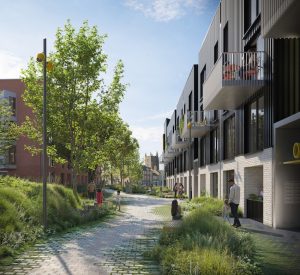New library to have business incubation hub

BIRMINGHAM’S new library will have a business incubation centre where up to a dozen start-up companies will be helped to grow.
The £188m project will create the largest public library in Europe when Carillion completes construction and fit-out in 2013, and will attract up to 10,000 visitors a day.
As well as strengthening its links with cultural and educational organisations in the city, the library team is looking to significantly strengthen business support services at precisely the time that others such as Business Link are going to the wall.
Library chief Brian Gambles said the library each year already helps up to 500 small businesses get off the ground, but the move to the new building was a major opportunity to help even more.
“We see us working as now with many community-based business start-ups and social enterprises,” he said. “But there’s definitely a support gap between that level and the kind of incubation services offered to high-tech high-growth businesses at, say, Birmingham Science Park Aston.”
The business incubation hub will provide mini-office spaces, IT connectivity and access to advice, reference materials and meeting rooms inside the new building.
And among the hub’s first customers could be ex-council employees making the transition from the public sector to private business, as local authority cuts start to bite.
Lorraine McCulloch, head of the library’s learning and business support service said: “We may be serving redundant council staff looking to set up community interest companies. We offer support that helps fill knowledge gaps and build people’s confidence.”
The library’s original ‘Commercial Library’ was opened in 1919, and was a vital source of information for businesses across the city. It changed direction into a resource and support service in the 1990s as the internet became the primary source of information for most companies.
The new library building in Centenary Square will open in 2013, but its distinctive metalwork exterior – prefabricated in Germany – will start to appear as early as this autumn. With a core workforce of up to 1000, the project has employed 250 workers from Birmingham’s long-term unemployed, as well as creating 75 on-site apprenticeships for school leavers.









